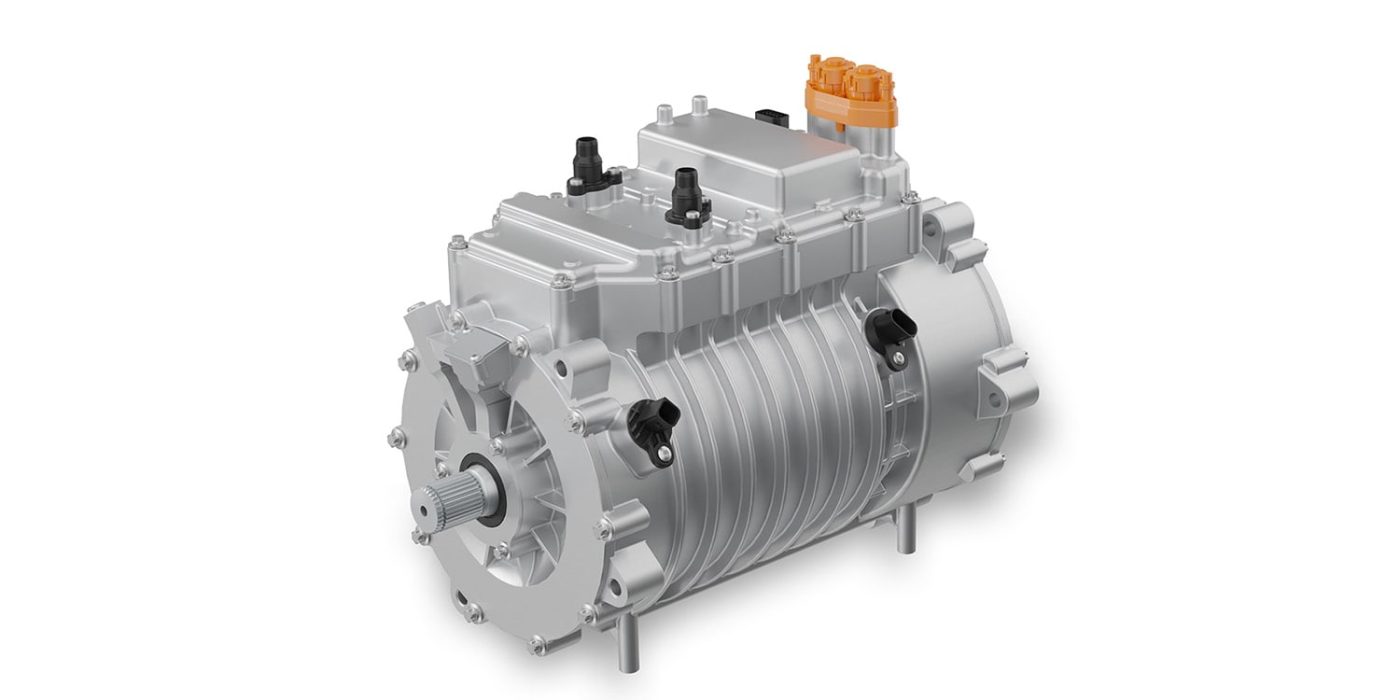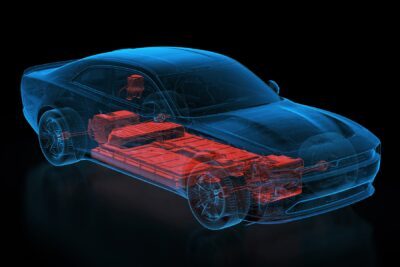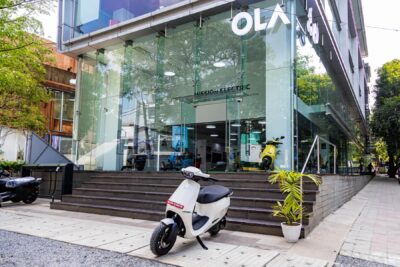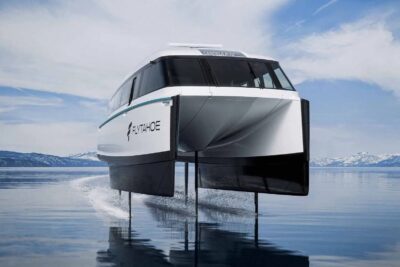ZF unveils 800-Volt drive in EVBeat concept car
German automotive supplier ZF has showcased its latest electric vehicle technologies in a concept car based on the Porsche Taycan. The EVBeat carries ZF’s latest 800-Volt electric drive, the EVSys800, and a proprietary central thermal management system.
ZF says it designed the new system for “maximum compactness, low weight, and maximum efficiency in real-world operation”. The market launch is set for 2026.
Indeed, the drivetrain weighs just 74 kilograms. This makes the EVSys800 drivetrain approximately 40 kilograms lighter than ZF’s latest 800-volt production drivetrain, contributing to the overall weight reduction of the concept car.
As a whole, the EVSys800 is a modular system designed for passenger vehicles, consisting of a silicon carbide power electronics unit, an electric motor, and a reduction gear.
With a continuous power output of 206 kW and a peak power output of 275 kW, the motor offers a torque density of 70 Newton meters per kilogram of weight. This performance enables the concept vehicle to deliver a maximum torque of 5,200 Newton meters at the rear axle.
ZF achieved these advancements through a new cooling concept and innovative winding technology in the electric motor. ZF says, in terms of dimensions, the drive saves 50 millimetres in width thanks to the compact reduction gearbox and the patented ‘Braided Winding’. This also enables ten per cent less installation space, and ZF adds the winding head alone is up to 50 per cent smaller than with conventional approaches. Direct oil cooling of the copper rods optimizes thermal management.
ZF also “fundamentally redesigned” the inverter of the electric drivetrain, resulting in improvements in electromagnetic compatibility, power modules, and capacitors, again reducing size and weight and increasing sustainability. Additionally, integrating a coaxial reduction gear enhances performance by transmitting driving forces through two planetary gear sets.
Looking at the central thermomanagement system named TherMaS in the EVbeat concept car, it is the first such system ZF ever designed for electric vehicles and literally central to the new drive. It utilizes a centralized unit and software to control thermal processes for the propulsion system, battery, and passenger compartment. ZF says its design significantly reduces space requirements and weight compared to conventional cooling and heating systems. Including a propane-based 800-volt heat pump in the system reduces energy consumption.
In detail, the TherMaS consists of three “designated circuits,” with a small, hermetically sealed refrigerant circuit at its core. Propane serves as the refrigerant, while two separate coolant circuits containing frost-resistant water regulate the temperature of the electric machine and the power and charging electronics. The software adjusts cooling performance based on demand and enables higher continuous power output from the electric machine.
“Thanks to this overall thermal management, the range of the EVbeat increases by up to a third in demanding winter operation,” writes ZF.
The last innovation is a new cloud-based drive software ZF developed for the modified Taycan. The powertrain software networks all vehicle systems with each other and establishes the connection to the cloud. The supplier adds that while the hardware laid an essential foundation for the sustainable operation of the vehicle, their optimum orchestration is achieved via the software. By analyzing individual driving profiles and leveraging cloud-based artificial intelligence, the software adapts to driver behaviour, enhancing overall performance.
Moreover, the system is designed to keep thermal operating points in the optimum range at all times since the efficiency of an electric motor depends on it, writes ZF. “At low speeds and high torque requirements, the optimum thermal operating point is very low, while at high speeds with low torque requirements, high temperatures are not a problem.” However, since thermal conditions cannot be established at short notice, ZF programmed the software to anticipate the optimum operating points from the individual driving profiles mentioned above and prepare the system accordingly. It “learns” drivers’ behaviour and can predict the probability of personal driving profiles through the AI-based cloud service, so ZF. For example, air conditioning and system cooling are reduced when short distances are detected.
“Sustainable mobility is at the core of our corporate strategy,” explained Stephan von Schuckmann, a member of the ZF Board of Management. “Based on an extremely efficient production vehicle, we are showing the potential that future electric drive components offer when we combine them into an even more efficient overall system.”
“With this system, we can perfectly meet the main requirements of our customers – namely efficiency, performance and costs,” said Dr Otmar Scharrer, Head of Development for Electric Driveline Systems at ZF.
The first technologies of the new ZF driveline will be available on the market in 2026.





0 Comments